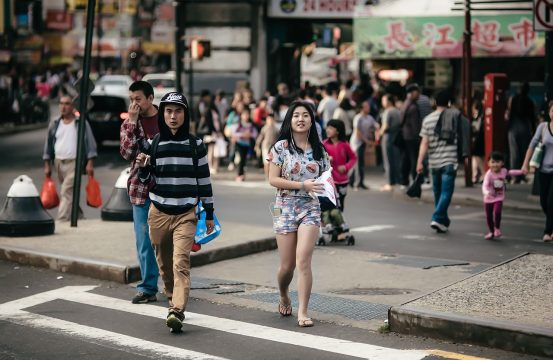 “We are converting the brain drain to brain gain,” announced Indian President Narendra Modi in January at a celebration of Pravasi Bharatiya Divas, a holiday to honor the contribution of India’s diaspora. Chinese President Xi Jinping made similar remarks in 2014, saying that overseas Chinese “can play an irreplaceable role in realizing the Chinese Dream of National Rejuvenation as they are patriotic and rich in capital, talent, resources, and business connections.” With approximately 15.6 million Indians and 9.5 million Chinese abroad (not to mention an estimated 25 million people of Indian origin and 48 million of Chinese heritage), the nations boast two of the world’s largest diasporas. They also share many aspirations and challenges in their policies toward them: both want to benefit from their compatriots’ success abroad, but struggle with a lack of dual citizenship and quality of life issues that could deter potential returnees.
“We are converting the brain drain to brain gain,” announced Indian President Narendra Modi in January at a celebration of Pravasi Bharatiya Divas, a holiday to honor the contribution of India’s diaspora. Chinese President Xi Jinping made similar remarks in 2014, saying that overseas Chinese “can play an irreplaceable role in realizing the Chinese Dream of National Rejuvenation as they are patriotic and rich in capital, talent, resources, and business connections.” With approximately 15.6 million Indians and 9.5 million Chinese abroad (not to mention an estimated 25 million people of Indian origin and 48 million of Chinese heritage), the nations boast two of the world’s largest diasporas. They also share many aspirations and challenges in their policies toward them: both want to benefit from their compatriots’ success abroad, but struggle with a lack of dual citizenship and quality of life issues that could deter potential returnees.
But despite these similarities, the two nations engage their diasporas in different manners. For China, the relationship has been all about bringing capital and individuals back to promote national economic development. For India, meanwhile, the relationship centers on the diaspora’s role as a source of soft power and expertise even if members remain abroad, although the Modi government now appears increasingly focused on attracting diaspora investment as well.
Nowhere is this difference more visible than in the styles through which Indian and Chinese leaders interact with their diasporas. Chinese leaders rarely meet with overseas Chinese groups during international trips and favor official domestic events such as the World Huaqiao Huaren Businessmen and Industrialists Conference or the Conference for Friendship of Overseas Chinese Associations. These meetings of besuited entrepreneurs in the Great Hall of the People are a world away from Modi’s international speeches, where he addresses non-resident Indians on their home turf, drawing thousands to arenas from New York’s Madison Square Garden to London’s Wembley Stadium. Such events help cultivate soft power among those of Indian heritage and officials hope that diaspora members can act as “informal ambassadors for India in their own country,” demonstrating the value of ties with India to foreign governments.
The economic role of the diaspora also varies starkly between the two nations. The Chinese government has historically focused on overseas Chinese communities as a source of foreign direct investment (FDI). For decades, China has both received more overall FDI than India (although India overtook it in 2015), and a larger share of investment from members of its diaspora.






